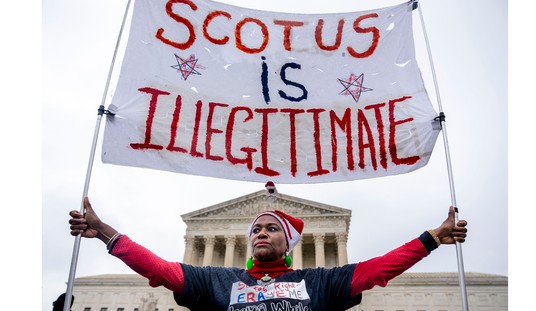Thank goodness for Judicial Watch’s Tom Fitton whose tireless pursuit of the truth has already exposed so much. His most recent Freedom of Information Act (FOIA) request has provided us with 422 pages of FBI documents related to “Midyear Exam,” the FBI’s investigation into Hillary Clinton’s use of a private server during her tenure as Secretary of State.
The server was managed by a company called Platte River Networks (PRN).
The FBI notes of a February 2016 interview with a PRN official are especially damaging to the former First Lady. The notes reference an email dated December 11, 2014 which reads “Hillary cover up operation work ticket archive cleanup.” Asked about the email by an FBI agent, the official said it was “probably related to change to 60 day [sic] email retention policy/backup,” but he did not “recall the prior policy.”
The notes show that PRN “gave someone access to live HRC archive mailbox at some point.”
Another says, “[Redacted] advised [redacted] not to answer questions related to conv [conversation] w/DK [David Kendall] document 49 – based on 5th amendment.” The subject said that “everyone @ PRN has access to client portal.”
“A December 11, 2014, Platte River Networks email between redacted parties says: “Its [sic] all part of the Hillary coverup operation <smile> I’ll have to tell you about it at the party”
Hmmm.
Here are some of the highlights:
*An August 2015 email from Platte River Networks says: “So does this mean we don’t have offsite backups currently? That could be a problem if someone hacks this thing and jacks it up. We will have to be able to produce a copy of it somehow, or we’re in some deep shit. Also, what ever [sic] came from the guys at Datto about the old backups? Do they have anyway [sic] of getting those back after we were told to cut it to 30 days?”
*In March 2015, Platte River Networks specifically discusses security of the email server. [Redacted] is going to send over a list of recommendations for us to apply for additional security against hackers. He did say we should probably remove all Clinton files, folders, info off our servers etc. on an independent drive.
*Handwritten notes that appear to be from Platte River Networks in February 2016 mention questions concerning the Clinton email system and state of back-ups.
*The documents show Platte River Networks’ use of BleachBit on the Clinton server. The BleachBit program was downloaded from a vendor called SourceForge at 11:42am on March 31, 2015, according to a computer event log, and over the next half hour, was used to delete the files on Hillary’s server.
*The documents also contain emails and handwritten notes written in June and July 2015 from the Office of the Intelligence Community Inspector General discussing “concerns” over classified information. A redacted sender writes to State Department Official Margaret “Peggy” Grafeld that “inadvertent release of State Department’s equities when this collection is released in its entirety — the potential damage to the foreign relations of the United States could be significant. ICIG McCullough forwards the concern, saying: “Need you plugged in on this.”
From: [Redacted]
Sent: Saturday, June 27, 2015 2:46 PM
To: Grafeld, Margaret P [Peggy]
Subject: Concerns about the HRC Review …
While working with this inspector, I have personally reviewed hundreds of documents in the HRC collection. I can now say, without reservation, that there are literally hundreds of classified emails in this collection; maybe more. For example, there are comments by Department staff in emails relating to the Wikileaks unauthorized disclosures; many of the emails relating to this actually confirm the information in the disclosures. This material is the subject of FOIA litigation, and the emails will now have to be found, reviewed and upgraded. Under the EO 13526, it would be in in our right to classify the entire HRC collection at the Secret level because of the “mosaic effect.” While there may be IC equities in the collection, I am very concerned about the inadvertent release of State Department’s equities when this collection is released in its entirety — the potential damage to the foreign relations of the United States could be significant.
***
From: Chuck Mccullough [sic]
Sent: Monday, June 29, 2015 11:16 AM
To: [Redacted]
Subject: FW: SBU FW: Concerns about the HRC Review …
[Redacted]
Need you plugged in on this. Need to coordinate w/ State’s WB person.
*In an August 2015 internal FBI memo, the FBI notes that Hillary Clinton had signed a June 28, 2011, official correspondence advising all State Department employees that, “due to ‘recent targeting of personal e-mail accounts by online adversaries,’ State employees should ‘avoid conducting official Department business from (their) personal e-mail accounts.” The same FBI memo noted that Under Secretary of State for Management Patrick Kennedy had sent a memo to all senior State Department officials on August 28, 2014, in which Kennedy included excerpts from the Foreign Affairs Manual that said that “classified information must be sent via classified e-mail channels only…”
*In an August 2015 classified memo prepared by the FBI Counterintelligence Division regarding the findings of the ICIG with respect to Hillary’s email server, the FBI noted that the ICIG had found that in a sampling of only 40 of Hillary’s 30,000 emails, four classified emails were found. A subsequent letter sent by Sen. Richard Burr (R-NC) to ODNI Clapper regarding this sample of Clinton’s emails noted that they were all classified at the secret level.
*The documents uncovered by Judicial Watch also show infighting between State Department Under Secretary Patrick Kennedy and the ICIG over the processing of the potentially compromised Clinton email communications.
*An August 4, 2015, interview by the FBI of State Department IG Steven Linick mentions an incident on “May 13, 2011 2:28 am Huma – Phil Rein potential hack.”
The drip, drip, drip of information that has been so frustrating for the last couple of years seems to have ended.
Of course, we have people like Tom Fitton, Rep. Devin Nunes (R-CA), Rep. Doug Collins (R-GA) and so many others to thank and I am by no means minimizing the work they have done.
But, it’s been the change at the top of the DOJ that has broken the dam.
Many believed that new Attorney General William Barr would turn out to be just another creature of the Deep State. Instead, he has turned out to be just what the doctor ordered.
I wrote a post here about a meeting that took place shortly after Barr took office. Robert Mueller, along with several members of his team, including pit bull Andrew Weissman, met with Barr to request an extension to the cooperation agreement they had established with General Michael Flynn which they believed would lead to a new indictment.
Barr was said to have asked them, “Do you have something ironclad that you want General Flynn to be cooperating on? Do you have something in terms of probable cause moving toward an indictment or is this just a fishing expedition?”
One News America’s Jack Posobiec said:
Mueller and Barr held a conversation and they later determined that what they [Mueller] had wasn’t quite enough. Now some of the prosecutors working under Mueller like Weissman, did want to push forward and ask for more cooperation, but Barr said it wasn’t enough. Therefore, Mueller released a statement saying that officially, for the first time, that General Flynn’s cooperation agreement has been ended.
Realizing there was a new sheriff in town, Mueller wrapped up his investigation very shortly after this meeting.
My colleague, Streiff, wrote an insightful, analytical post here in which he draws a similar conclusion. Streiff wrote:
Let’s get some dates on the board. Barr was nominated on December 18. The Senate Judiciary Committee voted him out on February 7. He was confirmed on February 14.
Acting Attorney General Matthew Whitaker proclaimed the Mueller investigation was “close to completed” on January 28. The first use of the phrase “winding down” in conjunction with the Mueller investigation appears February 6 as the first prosecutor leaves the investigation. On March 14, Andrew Weissmann left the investigation and resigned from the Justice Department.
The appearance is that the nomination of Barr was the catalyst for ending the Mueller investigation.
Barr is providing something the DOJ desperately lacked during the Jeff Sessions era. Leadership.













Join the conversation as a VIP Member